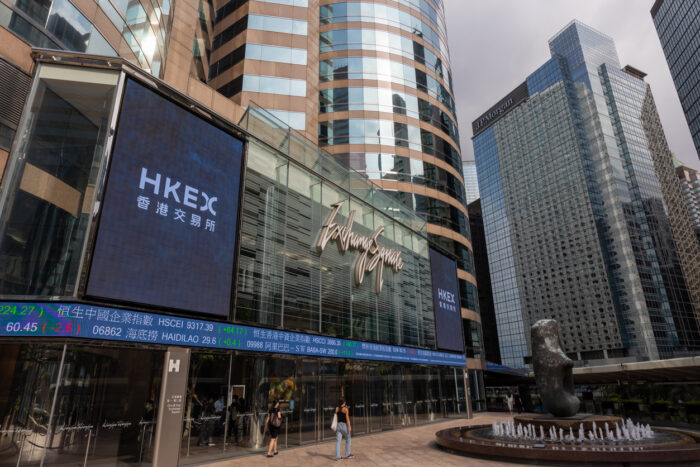After an attempted recovery, stocks listed on the Hong Kong Stock Exchange (HSE) felt foreign investors’ doubt intensify on Monday as a stock discount to mainland peers grew to 36%, the exchange’s largest discount in 15 years. HSE-listed stocks are considered an accurate representation of the world’s second-largest economy, and currently, this economy appears to be struggling.
Hong Kong stock sell-off adds to China’s market instability

Following market instability, the Hang Seng China Enterprises Index (HSCEI) plummeted 2.4%, a stone’s throw away from its lowest level in 20 years. The CSI 300 index also fell 1.6% at market opening. Across the water, however, Wall Street’s S&P 500 index hit a 2-year record high to close last week’s market.
Don’t miss out the latest news, subscribe to LeapRate’s newsletter
Marvin Chen, an intelligence analyst at Bloomberg, noted that the technology stocks Meituan, Tencent Holdings Ltd. and BYD Co. may need more supply chain interest and bigger, more attractive competitors.
Chen stated:
Global markets have been surging on the chip sector, and this is an area where China and the rest of the world may run on separate tracks due to geopolitical tensions.
Saxo Capital markets strategist Redmond Wong suggested that the reduced interest in the HSE is because Asian investors may face restrictions on the stocks they can hold and have removed holdings on the HSE instead of opting for home turf exchanges.
Compared to other manor benchmark global indexes, the HSE is the worst-performing exchange in 2024 to date, with a 13% loss of listed stocks. The S&P 500, however, has gained 1.5%.